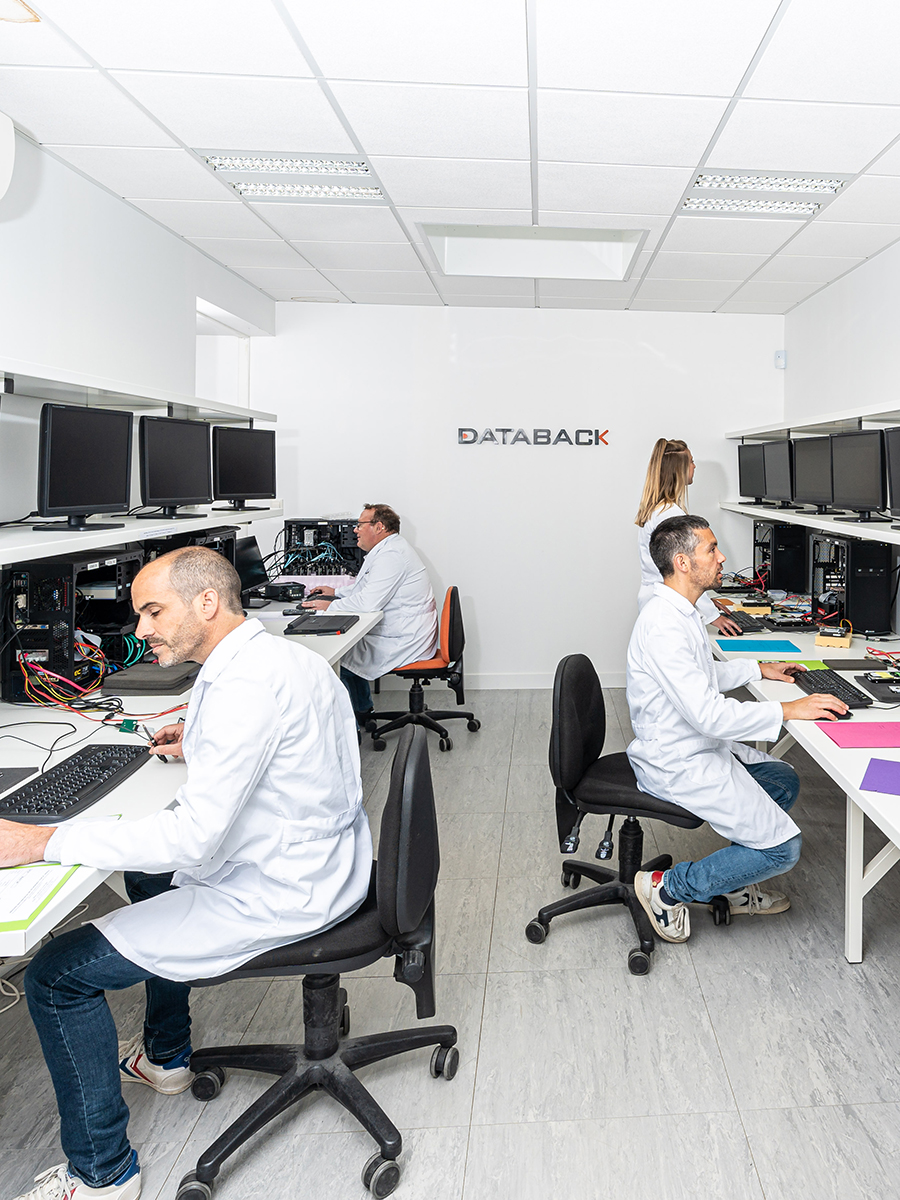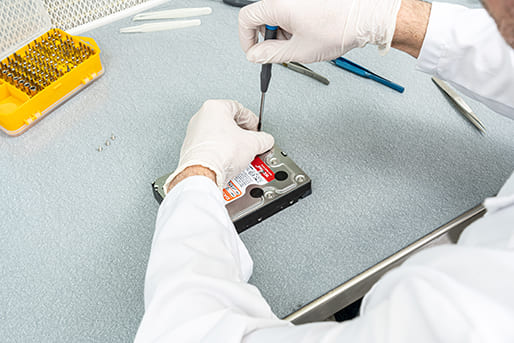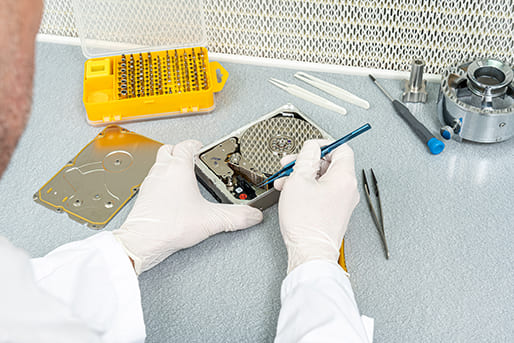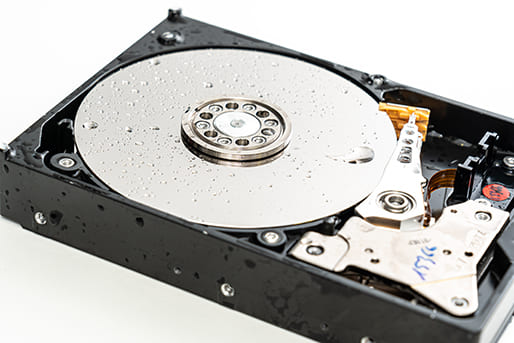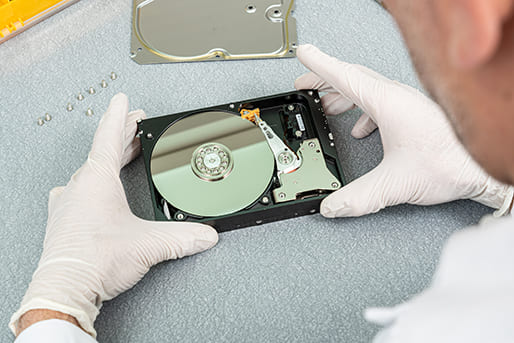
Databack recovers your data from hard disk
The hard disk or HDD: principles and applications
The hard disk or HDD (Hard Disk Drive) is a magnetic data storage medium. It is a “mass memory”, meaning that it can store large volumes of non-volatile data. Since its invention in 1956 by IBM, the hard disk drive has evolved considerably in capacity and performance, while seeing its use predominantly in the field of information storage.
Mass storage technologies are constantly evolving. And alongside “classic” hard disks, other technologies are developing: SSDSSHD or hybrid hard disk, helium hard disk









